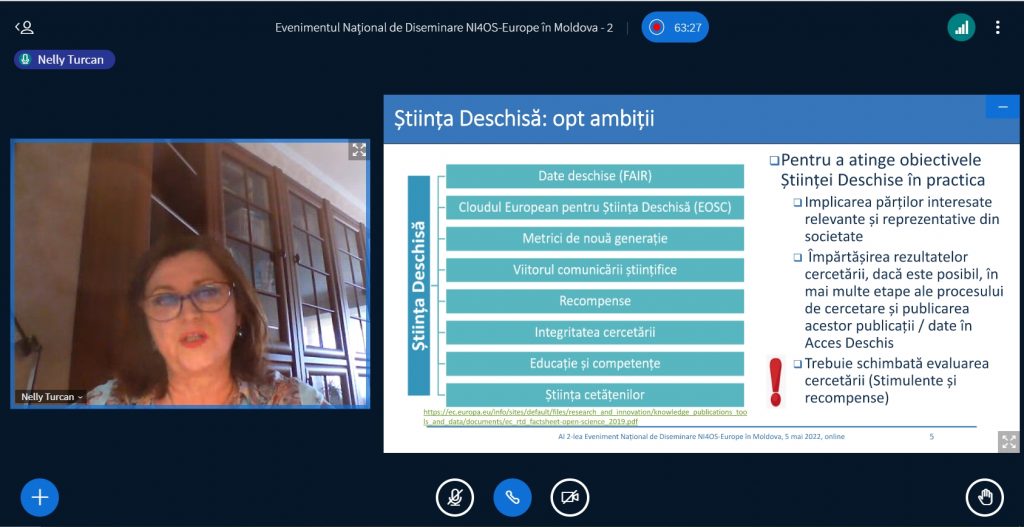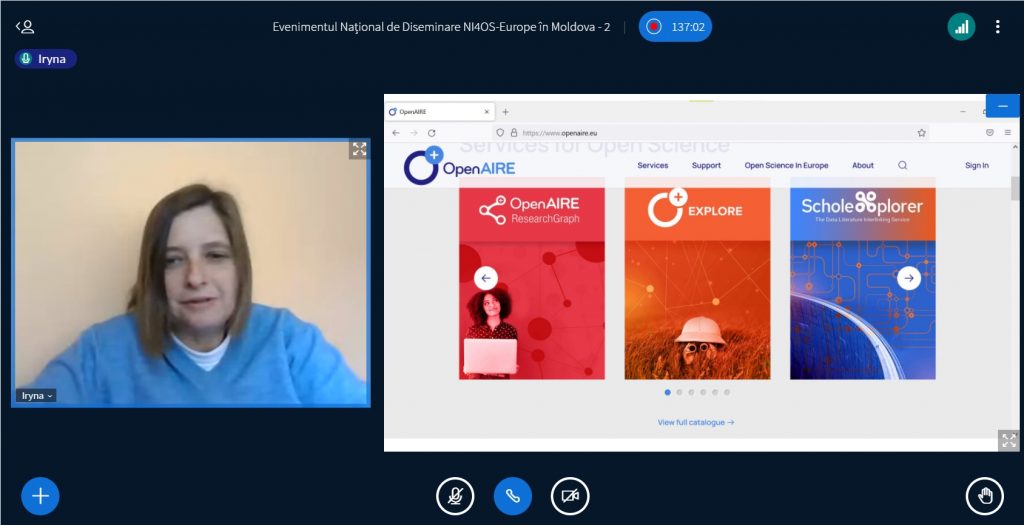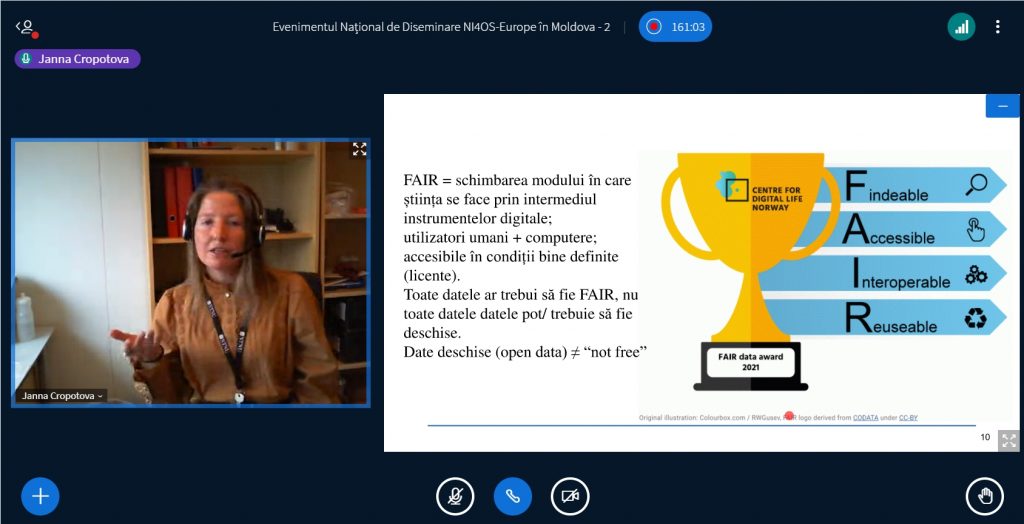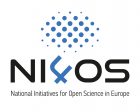“Having some successful examples on Open Access, it remains to identify the concrete measures on Open Data and Open Collaboration with the involvement of relevant and representative stakeholders from society” – this was the main message of the 2nd NI4OS-Europe National Dissemination Event in Moldova held on May 5, 2022.
This three-and-a-half-hour online event was attended by 71 representatives of Moldovan universities and research institutions, librarians and policy makers. The event was organized by the Research and Educational Networking Association of Moldova (RENAM), as the NI4OS-Europe project partner, with the support of the Ministry of Education and Research of the Republic of Moldova and the National Agency for Research and Development. We are proud to announce that NI4OS-Europe Training Platform has successfully helped to make this happen as an online event. Thanks to it, all slides and video recordings are available for stakeholders – 87 registered persons can view these materials at any suitable time after the event.
The event started with a welcome speech, delivered by Olga Tretiacov, principal consultant of the Directorate for Research and Innovation Policy of the Ministry of Education and Research of the Republic of Moldova. She mentioned that the action of elaboration of the concept of a strategic document on Open Science is included in the Action Plan of the Ministry for 2022. There was emphasized the importance of dialogue and integration of the efforts of all stakeholders at the national level, which will contribute to the improvement of policies in this domain and to the implementation of the necessary actions for the development of Open Science in Moldova.
After that, Igor Chiosa, senior consultant of the International Cooperation and Sustainable Development Department of the National Agency for Research and Development, noted that the principles of Open Science are also taken into account in the evaluation of project proposals, including in Horizon Europe, the new European Union Programme for Research and Innovation (2021-2027), and he called on the participants to pay due attention to the Open Science aspects and their implementation.
The first presentation was given by Dr. Peter Bogatencov, Chairman of the RENAM Management Board, who introduced the NI4OS-Europe project and regional context, its mission and contribution to EOSC (European Open Science Cloud), the National Open Science Cloud Initiatives and policy support, recently implemented activities regarding on-boarding the NI4OS-Europe services and repositories into EOSC and the call for proposals for accessing resources from the NI4OS-Europe catalogue. As well as covering the EOSC initiative and its scope, information was also provided about structure of the minimum viable EOSC, access to the EOSC services through the EOSC portal, and the EOSC Future project, which supports the EOSC development covering various thematic areas of science.

In the second presentation, Dr. Habil., Prof. Nelly Țurcan of Moldova State University and Information Society Development Institute, national EOSC promoter, stressed that Open Science is a system change allowing for better science, which needs to be tackled at the level of the entire system, with the main purpose of increasing the quality, progress and scientific/societal impact of scientific research. She talked about problems of the existing system of evaluation and rewards in science, traditional (quantitative) measurement of scientific performance, new initiatives and actions on assessment, incentives, and rewards aimed at the future of Open Science (including UNESCO Recommendation on Open Science and Plan S), alternative metrics and examples of their use, open peer review, current state regarding the use of open evaluation procedures in the Republic of Moldova and practical recommendations on how to change it.

In the third presentation Dr. Iryna Kuchma, the EIFL Open Access Programme (EIFL-OA) Manager, and OpenAIRE member gave an overview of the Open Science values and principles and the areas of action for the development of Open Science. She presented the OpenAIRE mission as an infrastructure project, based on 3 pillars (policies, services, and training), a wide range of free of charge OpenAIRE services/tools designed for all stakeholders to monitor, accelerate and support scientific research, OpenAIRE guidelines for different types of scientific results and practical examples of answering research questions, using services integrated into EOSC.

Lastly, Dr. Janna Cropotova, Associate Professor at the Department of Biological Sciences Ålesund of the Norwegian University of Science and Technology, stressed that Open Science cannot be achieved without the adoption of the FAIR principles, bringing a change in the ways science is done using digital tools. In addition, the practical aspects of Open Science in Norway have been highlighted: agreements for publishing Open Access, the research data portal of the University, and the repository for open research data uploaded by Norwegian researchers (in the framework of national or international projects), the advantages of Open Access on individual, European and global levels, publishing options, support and training on Open Science from the library.
